Time Travel as Survival
Author(s)
Promona Sengupta
Grappling with the imposed linearity of timespace as a fundamental feature of colonial violence, this essay by Promona Sengupta (also known as Captian Pro of the interspecies intergalactic FLINTAQ+ crew of the Spaceship Beben) proposes a mode of time travel that is “untethered from colonial imaginations of the traversability of time and space.” While coloniality has enforced an externalization of time and space as things outside the body, Sengupta affirms practices of relational care and survival that restore time and space as embodied realities.

The following is Captain Pro’s reflections on the congruity between colonial violence and the imposed linearity of time and space. As a member of the Beben crew, she and her comrades propose relationality, care, grounding, and flying as acts of Time Traveling survival under the regimes of colonial linearity. The essay includes theoretical and experiential knowledges, a dispatch from the flightlogs of the Spaceship Beben, and a recipe for grounding as part of the practice of care.
It contains discussion of a space justice process, specifically an instance of rape in deeep space, and personal notes from Captain Pro, the dispatcher, who was given [by whom?] the job of adjudication and aftercare for the survivor. The text contains sensitive information, such as the identities of the survivor and perpetrator, details of the legal proceedings, and intense personal emotions. Readers [especially survivors] are advised to proceed only after checking in with their own emotional capacities.
Linearity: The Rational Cosmology of Debt
A great lie has been told: that the profundity of our lives is to be rationed out in chewable morsels of time and space, as if we were defenseless baby birds, unable to eat without assistance. That in itself would have been troubling enough, if not for the even graver business of the enforced consensus around a universalized standard of time and space—the slippery mathematics of money. We spend and save time, sometimes we waste it and gain it. We often lose it. And space? We close it, like a deal. It is not surprising that the jewels of research in astrophysics that argue for time and space as relative and relational integers rather than rational integers are gatekept within a realm of abstraction, while the quotidian world, deemed too stupid to grasp the big words of smart scientists, are forced to connect their times and spaces to the nomenclature of money and debt. This is not merely a linguistic tool. Time and space are to be rationed out as experiences, rationed and rational, categorized through arithmetic divisions, additions, subtractions, multiplications.
Courting the cosmology of debt means inviting in its spirit—theft. The violence of primitive accumulation: what is its own is rendered the property of some, and according to their whims and fancies it will be lent out, with enforced interest rates. Time and space, constituting our fundamental experience of ourselves and the world, are moved from subjective, situated knowledges, to rationed, regimented arrangements entirely pivoted on profit. Linear, progressive time works to rationalize productivity and human labor for industrialization. Linear, progressive space works to rationalize colonial mobility and land grabbing as legitimate and superior ways of being in the world. To a great extent, this was all a process of externalization—time and space had to be reconstituted as things outside our bodies, experiences that we could enter and exit, and measure out like a shopkeeper. This great project of expelling time and space from our bodies was perhaps the main framework to ensure that these large, humbling realities could be domesticated and mined. It was a project of concerted epistemicide, which provided the bedrock for coloniality.
Coloniality is the high-profit business of lines. The line that was drawn from Black ancientness to White civilization. The line drawn multiple times across a map that colonizers followed to Turtle Island. The line that divides the global south from the north. The line overinvested in dividing our experiences into binaries. It is only in the form of linearity—wherein something comes after another thing, and then leads to another thing in an endless forward/backward movement—that we are allowed to experience time and space as things outside the body.
The very idea of our lives following a forward movement ending in death, is based on the negation of the fact that our lives are not only our own, they are lived in deep relation, before and after our deaths, with other sentient and non-sentient beings, in this world and others. Linearity is necessary for regimes of alienation, loneliness, distance and individuation of profound experiences that shore up our bodies in connection to the world. The measuring unit of linearity, distance, is not only, as propounded, a manner of scale, but the de facto experience of being in the world of those who have been touched by the violence of coloniality. To be clear, all of us who are distanced and marginalized from any claim to a center, are in practice unable to exist without relationality. We have to take care of each other, otherwise we die away, as designed by a linear system of progress, of history, of knowledge production, of profit, fueling itself on our deaths. The body count of linearity continues as we speak. However, survival is not only possible, it is paramount. The primary tool of survival is care, the constitutive experience of relationality.
People and experiences have lived not only “before” and “after” coloniality, but outside of it, in spite of it. Even under the worst conditions of colonial genocide (which is to be axiomatically seen as the standard experience of coloniality), knowledge of time and space as bodily, lived realms, has sustained itself through continued practice. There need not be a fetish around survival of “precolonial cultures”—survival is a repertoire of many playful and painful practices of care that help us embrace ourselves and dignify ourselves as our main teachers. Our bodies and minds are receptacles of healing and regeneration with indestructible recesses of history and knowledge. Survival is the existential restoration of time and space as bodily realms, as things that are inside us and in relation to the world in which we are situated—bringing forth a dissolution of the boundaries that are erected around our limitless selves.
In this regard, survival from violence opens us up—admittedly through incredible and unnecessary pain—to a rehoming, which systematically destroys the externalized linearity of space and time. In situated ways, survivors of violence (including people, beings and knowledges) have a special claim on breaking through the enforced linearity of experience. And care as an act of survival—towards restoration of life, restitution of health, fond remembrance in passing, passionate channeling from afterlives—is conditional to ensuring the destruction of the linear through the continued survival of the relational.
In the linear cosmology of debt, causality is highly valued as a moral constituent of experience—if violence has happened, there must be ways to understand what happened in the past and how things can be resolved in the future. The present is of course the space of procedure to uphold the linearity of experience, through court cases, history books, due processes, and the like. But survivors, having survived violence through many creative means, understand that the violence did not start and end in a linear way, and that the cause of the violence is simply the logic of theft—the logic that says that what was its own thing can be forcibly taken. The inscription of the violence on the survivor’s body exists for years in the case of humans, and generations in the case of communities, not to comment on trees, tortoises, and knowledges. The survivor never forgets the violence. In having to hold this other spatiotemporality in their bodies, and find ways to cohabit with its toxicity, they do the quotidian labor of time travel, that work of situating time and space traversal as bodily, relational processes of healing as opposed to externalized projects of colonial expansion and penetration.
Encountering trauma necessitates opening the doors of cyclicality and relentlessness. The relational care of community is crucial to substantiate this breakdown of compulsory linearity, as a valid experience of spatiotemporality, and to be able to ground the survivor in their time travels —constant revisitations from trauma and violence that necessitates the flight of the self to realms outside the violent, material realities of linearity. There are many moments of out-of-body experience in a survivor’s life—flashbacks, hauntings, revisitations for proof—and the practice of survival involves strategies of care to ground oneself through these. A landback of the body; a restitution of the timespace that was stolen and thrown out of the body. It also needs the constant and careful flight out of the loop of trauma, to worldings in which the survivor is able to live on, free of the inevitability of the traumatic loop. Both the grounding and the flying are thus paramount to the practice of care. This contiguous deployment of motion and rest is called Time Travel.
In my work life, I captain a Spaceship called Beben, which is a deeep space exploration vehicle. The depth of space is not subject to any comprehension or domestication of any sort—we are happy with our lack of understanding. The crew decided to spell the adjective with an extra “e,” to nominally point towards the ridiculousness inherent in attempts at comprehension. Deeep is also a word that makes your mouth stretch more than necessary; signaling a pleasurable broadening of horizons. The ship is our home, to care for each other and ensure the survival of ourselves, our friends, our communities, our knowledges: things and people that have had to time travel through compulsory linearity and alienated distances to ensure their own continued existences together. We have faced risks of annihilation, and in our relational survivals, we have been able to understand the intimacy mechanics of time travel as and for survival. Let me share with you, as an example, a confidential ship dispatch, from a time when the crew was called to adjudicate, facilitate, care for, and ensure the survival of an entity who faced violence, and we managed, via the coterminous usage of flight and grounding, to ensure their survival via time travel. In the dispatch, you will find tactics of flight and grounding both.
Dispatch No. 1.285beta_scratch [CONFIDENTIAL]
Ship Name: Spaceship Beben, Explorer Class
Name of Dispatcher: Captain Pro
Time: Big Crunch Neoteny
Location: Approaching the Gate | Crossing the Gate
Content warning: rape
As the serving Captain of the FINTAQ+ crew of the Spaceship Beben, I, Captain Pro, was approached to consult on a galactic justice process following a rape that had taken place in deeep space.
The testimony of the survivor—the only relevant information in the justice proceedings—threw up a fundamental inner logic of violence that I believe is significant for the Beben and its crew. The inner truth of the violence seems to be theft. Primitive accumulation. This is significant with respect to the fact that the survivor is a Plutonic Volcano, rich in myriad etherorganic resources such as PlutoPlasma etc [reminder: Nav Chief’s plasmapit needs a wash, Pro to notify the Cosmic Oceanography Institute ASAP] and the perpetrator a relatively juvenile hypersentient radio wave with a colonial-extractive attitude [I am yet to discern what cycles of trauma the wave is perpetuating; they are uncommunicative]. But the theft operates on multiple registers. Several times during the testimony, the survivor mentioned their organic and tectonic realities before, during and after the violence. Before the violence took place, there was the threat of the same, which was causing them severe levels of fear and anxiety, interrupting their lived functionality as a sentient organism of the universe, resulting in theft of their right to rest and safety. During the violence, this was multiplied with severe bodily and psychological harm: a theft of bodily sovereignty and physical and mental health. After the violence, there was the matter of Post Traumatic Stress Disorder (PTSD) and the extreme wear and tear of seeking justice resulting in a consummate theft of time, energy, and the right to living a peaceful life. In their own words:
The violence does something particular to me – it alienates me from my own physical presence. At various moments, the violence has hit me differently – sometimes it is the feeling of my guts dropping down and out of my body, sploshing bloodily on to the floor. Other times I have felt a very strong spiral suddenly torquing through my thorax. Today, as the words and actions of violence were delivered to me while I was in the presence of my baby nephew, I found myself completely dissociating from my surroundings, panic rising, completely incapable of holding on to any emotion. I was lost. I am lost when faced with violence. Because that is the bulwark of violence—displacement of the self from the scaffolding of the mind, body and spirit. It is theft, robbery. I was robbed today for about three or four hours from myself because of the careless and casual (and systemic) violence meted out by colonizers towards the colony.
Be as it may that violence is present in the very bulwark of our material realities in this universe, and it is the means of production of our hitherto-known realities, this dispatch serves a purpose beyond the documentation of the justice process for the first reported rape in deeep space. It is a documentation of the story of the Beben, a spaceship and crew that is able to fly out of rape culture. There is reality: rape exists and we all have faced it. And then there is the hyperreality of deeep space: we fucking survived, in living and nonliving ways. Every crew member of the Beben has expertise and command over violence-survival. The myth is that life, as it stands, is in material ways violence, and the best we can do is to interrupt the violence with the iridescent ammunitions of our eros. But I speak from my own life experience when I say that our enmeshed existence in each other’s love, outside the purview of violence, is life itself, and heartless colonial cisheteropatriarchy is the disturbing interruption. It was only with the gentle garlanding of the Beben crew around me that I, a lonely time traveler trying to fathom atomized existence in timespace, became Captain Pro and began to truly fill out my mind and body – in an end to the theft of the self. We reject in toto the claim that our lives are what happens between unfettered violence, that we are somehow stealing time in order to be alive. Au contraire, violence has the inordinate temerity to pierce through our peace repeatedly, because this timeline had the audacity to see us as less than others. Comrades, we are in the other timeline, we have time traveled there. Our selves can no longer be robbed; we have survived and we are coming to take you with us.
[It goes without saying that the Beben crew have beamed up the survivor whose testimony I was asked to take. We were overjoyed to welcome on board a Plutonic Volcano, as Nav Chief Hydra has a special affinity to the inhabitants of that planet. Time travel is transformative justice, says the Beben.]
[End of Dispatch]



Means of Care for Safe Time Travel
How does one ensure relational survival of people, places, thoughts, and knowledges that have been stolen from each other to serve the purposes of colonial linearity? The vaguely defined identity of “community”, so often used as a catchphrase to denote a magical, ahistorical timespace of belonging, seems almost like an inadequate salve—“belonging” itself has been refracted through property ownership and land extraction. Nation states and heteronormative families, gated communities and corporate offices—terrible examples of relationality—continuously describe themselves as communities, and the perversion of the term is visible in the absence of care in these structures. By care I mean relational survival practices that engage us in both flight and grounding, towards the destruction of the inevitable, the linear, the preordained, the already-decided fatalism of annihilation.
Survivors of violence—those who have been nurtured by relationality—are able to testify to the deeply heterodox experience of the restoration of life in the care of others. In sharing the body’s dissolution of linear time and space, survivors validate and thicken time travel as a lived reality. Those who share with us this experience are our comrades. Etymologically denoting a “room-mate,” a comrade’s relationality to the self is that of shared carework—cohabitation. A comrade helps us rehome when we are homeless, in ourselves as in the world. A comrade is not family, not a fellow citizen, not a sibling – they do not tread the language of “belonging” in their relationality. They are just there. They are present. They cook for us. They clean with us. And in their constant presence with us, in our regular upkeep of survival, homing, grounding, they are allowed to constantly overreach the arbitrary boundaries around our rationed selves, our spaces, our times. That is their claim of deep love.
A comrade is more than a friend—the intimacy one shares with a comrade is the intense intimacy of both a shared timespace of material reality and a shared dream of the revolution. They validate and affirm the joint belief that another world is not only possible, but it is already here, in our comradeship. They are our time travel partners, as time travel is necessarily a relational affair, not a rationed, rational one. Living in a material timeline in which the revolution is denied an existence, it is comrades who embody the premonition of otherworlds, and their practices of relational care ensure survival outside the logics of transactional linearity.
The intergalactic interspecies FLINTAQ+ crew of Beben claims a deep, authentic, joyful life outside the cheap broken promises of mutual belonginghood of proprietary romance. Time travel has been embossed into our viscera, primarily through our experiences of love. The quickening of our hearts in each other’s company was the first time we were propelled into an alternative timeline of the body. The intense experience of each other’s touch pushed us into the pleasurably discombobulated worlds of the orgasm. The otherworlds that we created and inhabited when we tripped on psychotropics and danced together (under the watchful supervision of the onboard HapticFantastic Lab, drenched in the sweat of our comrades) were as concrete and real as the endless mutinies that the onboard Joyful Militancy Corps fomented, to nudge into transformation the existent material realities of oppression in Terran and beyond. Being in the radicalized state of love was and remains the Beben’s time travel bootcamp.
As long as there is hunger and sleep, love will not go anywhere. The need for love, like hunger and sleep, cannot be negated by violence. Starvation does not cancel out the rumblings of the tummy. Sleep deprivation is a documented form of fascist torture that robs people from their dreamworlds and the safety of rest. Similarly, violence is the rationing tactic of power which tries to force us into believing that we are deserving of indignity. Love is the sword of clarity that vehemently, surely, lacerates us away from the lie that we are living in a world of rationing—austerity policies.
Each of the Beben’s crew members has been able to steal back their own selves from the hostage situation of colonial cisheteropartriarchy in our timeline, living free in joy. We have found each other, to be soft and vulnerable and strong with, braiding with gentle hands the alternative chronotope in which all of us are courageous and living to the full capacity of all of our emotions. Each new comradeship that is born through the hell-fires of violence has been a worlding event.
It has to be borne in mind that the visceral load of love is as turbulent as that of violence, the immediately recognizable difference being that the former exclusively hits a register of excess while the latter solely works on the logic of subtraction. Time travel, fundamentally, is the practice of excess, the slow-burning stretching of all our horizons until we have journeyed into their beyonds. Limits can go fuck themselves—they belong in the steaming cesspits of the border regime. No borders. No nations. This is deeep space, bitch.
As the Captain of the Beben, it is my duty to note here that the excess of eros that underlines the logistics of time travel necessitates a grasp of grounding techniques. In Bangla, the word “khNuti” denotes a stick in the ground to which one ties their goats, their boats, their hopes and dreams. A khNuti is needed for the body and the mind to enter states of rapture brought forth by the erotic excesses of time travel. The Beben’s in-depth research of different forms of khNuti is precisely why I was assigned the carework consultancy for the rape survivor. The ungrounding of extractive violence can only be combated and repaired with the khNuti of comradely grounding. Towards this, and in my capacity of chef of the Beben, I prepared a dish that soothed and comforted and grounded the survivor, and successfully propelled them into the realm of pleasure.
Cooking and feeding are some of the most important modes of comradely care, which allows us to help restore energies and strength to the body, and also help our survivor comrades access pleasure in safe, non-violent ways. This is the practice of survival: care that provides restoration and grounding as well as excess and flying, thereby reinstating stolen, forcefully delineated time and space as experiential, embodied, relational entities.
The dish involved the richness of lactose and the limbic comfort of breastmilk consistency. It was created to fill the belly with the heaviness of starch; the tongue and the neurons of the upper body with explosions of sugar; and the pleasure centers of the lower body with heat. Once the fight/flight/freeze responses to bodily harm were neutralized through the tripartite hits of pleasure and comfort, the dish offered up sudden surprises of a nutty crunch, a bite into a tumescent raisin, or the grind of a pungent cardamom seed. These were the necessary khNutis of excess. Expertly designed by my grandmother Kato, particle physicist at large, the Chinir Payesh is created to help you access peaks of pleasure in absolutely safe, grounded ways, ending almost always in a state of restful nap. I’m noting down the recipe here for the future, as I am forgetful and always hyperstimulated, and things constantly fall through the cracks of this leaky tincan . . .
Kato’s Chinir Payesh
Ingredients:
Milk—1 liter (oatmilk tastes great, in case of preference)
Sugar—5 tablespoons (adjust according to taste/health-related preferences)
Rice—¾ cup (thoroughly washed and soaked for 30 minutes, short-grain if possible)
Cardamom pods—3
Ghee—1 teaspoon (coconut oil also works, resulting in mild but good change in flavour)
Almonds or nuts (and amount) of your choice—chopped roughly
Raisins—however many the cook desires
In a heavy-bottomed pot, pour out the milk and keep on a gentle heat. Stir in the sugar after 7–10 minutes of heat and wait for the first boil over to add in the rice and cardamom pods. Keep the heat on the low side to avoid the milk overboiling and keep stirring occasionally to dislodge and mix in cream deposits on the sides of the pot. Watch the pot.
On the side, take a small pan, pour in the ghee and once hot, add half of both the nuts and raisins. Exalt in the peerless smell of ghee-roasted nuts. When the raisins have plumped up with ghee and the nuts have a glaze, pour everything into the pot of milk. Stir gently.
Much like carework, cooking payesh takes time and close attention. After about 40 minutes, the thickened milk will turn pink and the starch released from the rice would congeal the dish. Once things reach a viscous consistency, cut off the heat. Eat warm or chilled, with a topping of leftover crunchy nuts and raisins and get ensconced in the soft sweetness of excess.
What Is and What Isn’t Time Travel?
We have been fed many gross untruths about Time Travel. It is too often presented to us as a mode of escapist fantasy, with images of touristing through linearity (“how would it feel to live in Ancient Egypt?”). But time is not made up of tourist destinations. We don’t call refugeehood tourism, do we? The idea of tourism is connected to an arrangement of space as a geometric plane to be traversed for leisure—a deeply colonial mentality that is fomented by false projections of “faraway” places and times existing for the sole purpose of supporting individual growth and relaxation.
Time Travel is untethered from colonial imaginations of the traversability of time and space. It starts with the acknowledgement of time and space as bodily realities. It starts with the acknowledgement that those who have relentlessly existed despite the threat of en masse annihilation, are Time Travelers. It consists of being able to sit still, rest, exist without having to try so hard to live, holding the hands of your fellow travelers, your comrades, without whose care, grounding and flight control, things would simply be impossible. If the universe is moving, and you are sitting still, the destination will come to you.
Time Travel is survival—the reality of being alive alongside the permanent presence of death. The colonial linearity of timespace deems death as an ending, and on the basis of this false axiom, colonizers deem certain people dead. However, survivors and their comrades know that death is an everpresence—we are capable of caring for each other and restoring our relational lives through the many enforced deaths of our bodies, our minds, and our knowledges. This is a simple and profound doctrine: Time Travel means being able to fly together into another timeline—to create it in our imaginations and then manifest it in our lives, through connection and through revolution.
Related

In dit korte afro-futuristische verhaal, geschreven door Amiri Baraka in 1995, ontdekt een ongenaamde uitvinder een manier om terug te reizen door de tijd – door muziek. “I duwde de Anyscape in de Rhythm Spectroscopic Transformation. En toen stemde ik het af zodat Anywhereness kan worden gecombineerd met de Reappearance als muziek!” legt de uitvinder uit. “Nu voeg ik Rhythm Travel toe! Je kunt verdwijnen en verschijnen waar en wanneer die muziek speelde.”
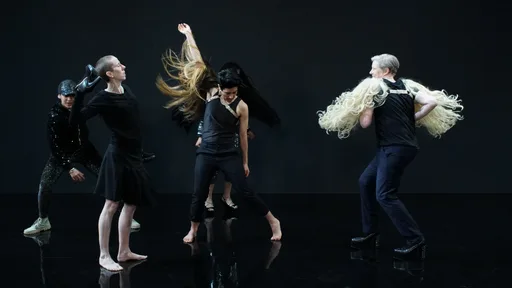
Tijdsgebonden drag, erohistoriografia, chronomornativiteit, geilheid onder het kapitalisme, ritme, dansen en 'crip time'. Dit zijn een paar van de onderwerpen die worden genoemd in het interview met Elizabeth Freeman, queer theoreticus en auteur van de boeken Time Binds: Queer Temporalities, Queer Histories (2010) en Beside You In Time: Sense Methods & Queer Sociabilities in the American 19th Century (2017), en Amelia Groom, co-editor van de 'No Linear Fucking Time' focus op Prospections.
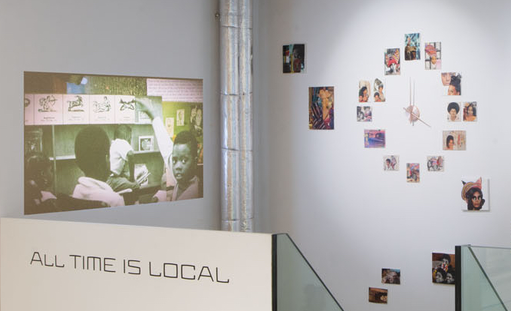
Reclamations of time, geared toward community and temporally “local” orientations, animate this interview with artists and activists Black Quantum Futurism (Rasheedah Phillips and Camae Ayewa), who draw from Afrofuturism, quantum physics, and “Afrodiasporic traditions of space and time that are not locked into a calendar’s date or a clock’s time." As discussed in the interview (which first appeared in Toward the Not Yet: Art as Public Practice, published by BAK and MIT Press, 2021), BQF’s recent and forthcoming projects directly challenge imperial and colonial standardizations of time.

Dit essay, oorspronkelijk gepubliceerd in het Journal of Interdisciplinary Voice Studies, is een onderdeel van muzikant en schrijver JJJJJerme Ellis’s veelzijdige project The Clearing. Ellis beschrijft het bos en zijn open plekken als “plekken van weerstandige ‘black oralities’” en verkent hoe stotteren, Blackness en muziek kunnen figureren binnen de praktijken van het weigeren van hegemonisch tijdsbeheer, spraak en ontmoeting.
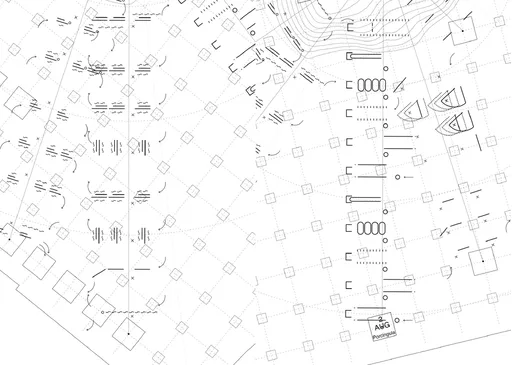
Wanneer inheemse gemeenschappen worden gevraagd om bewijs te tonen van hun traditionele connectie met hun voorouderlijke landen, respecteert wat Westerse legale instanties accepteren als documentatie niet volledig hoe stammencultuur en traditionele manieren van kennisoverdracht werken. Het onderzoeksproject en boek The Language of Secret Proof (2019), geschreven door Nina Valeria Kolowratnik, reageert op de ervaring met de productie van bewijsmateriaal van bewoners in Jemez Pueblo, New Mexico. Dit boek bevecht de omstandigheden waaronder de rechten van inheemse volken om traditioneel land te beschermen en terug te winnen worden behandeld in het wettelijk kader van de Verenigde Staten.
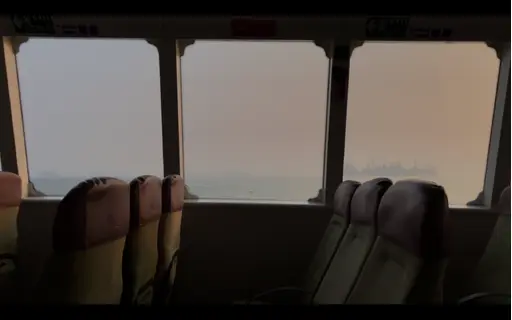
SEA – SHIPPING – SUN (2021) is een korte film en meditatie over maritieme handelsroutes, geregisseerd door Tiffany Sia en Yuri Pattison. De film werd opgenomen over de span van twee jaar, maar is geedit om het eruit te laten zien alsof het één dag is, van zonsopgang tot zonsondergang. De film speelt de soundtrack van scheepsberichten uit het archief van BBC Radio 4 uitzendingen. SEA – SHIPPING – SUN werd gemaakt met de intentie om de kijker slaperig of relaxed te laten voelen, en verzamelt een visie van verstrengeling. Wij worden achtergelaten met de overblijfselen van geschiedenis: een zachte, wiegende waltz over de zee.
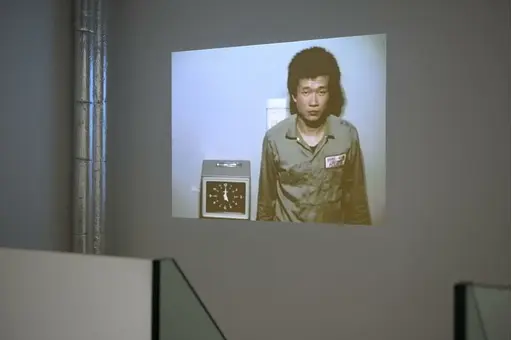
In dit essay reageert Amelia Groom op Tehching Hsieh's werk Time Clock Piece (One Year Performance 1980–1981) (1980-1981), een van de stukken die te zien is als onderdeel van de tentoonstelling No Linear Fucking Time bij BAK, basis voor actuele kunst, Utrecht. Door een lezing van het gelijktijdige anti-werk lied 9 to 5 (1980) van Dolly Parton reflecteert Groom op de historische verschuivingen in de manieren waarop werknemers werden en nog steeds worden uitgebuit door technieken van tijdsdiscipline.

Grappling with the imposed linearity of timespace as a fundamental feature of colonial violence, this essay by Promona Sengupta (also known as Captian Pro of the interspecies intergalactic FLINTAQ+ crew of the Spaceship Beben) proposes a mode of time travel that is “untethered from colonial imaginations of the traversability of time and space.” While coloniality has enforced an externalization of time and space as things outside the body, Sengupta affirms practices of relational care and survival that restore time and space as embodied realities.

Weird Times (2021) is een chapbook van 30 pagina's door kunstenaars Tiffany Sia en Yuri Pattison over de tijd aflezen en hegemonie. Het bevat Sia's schrijfwerk en beelden geselecteerd door Pattison, en geeft een korte geschiedenis weer van de ontiwkkeling van technologieën voor tijdregistratie. De klok wordt gedemonteerd als een politiek werktuig, een metronoom van dwang en een versneller van oorlogsmacht. Uit deze mechanieken verschijnen weerstandige ‘counter-tempos'.
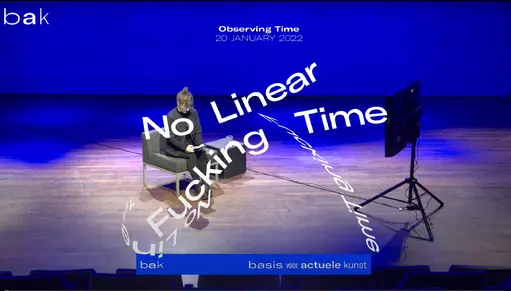
Een online gesprek met performance kunstenaar Tehching Hsieh, schrijver Amelia Groom en schrijver en curator Adrian Heathfield, geleid door Rachael Rakes, BAK curator Public Practice, op 20 januari 2022. Het gesprek neemt Hsieh's werk als uitgangspunt voor het bespreken van onder andere perfomatieve tijd, werktijd, gaten en ritmes van uithoudingsvermogen.
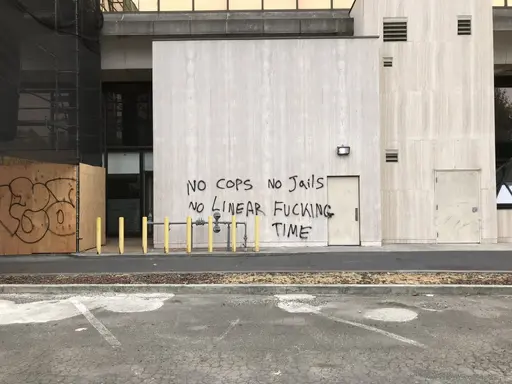
The No Linear Fucking Time Bibliografie is een zich ontwikkelend naslagwerk waarin wetenschappelijke en artistieke teksten worden gebundeld die betrekking hebben op de verscheidene onderzoekslijnen binnen dit project.

In ‘Reclaiming Time: On Blackness and Landscape’ (voor het eerst gepubliceerd in PN Review issue 257 in 2021), bekijkt dichter en schrijver Jason Allen-Paisant de geracialiseerde maatschappelijke contexten en moderne milieuconstructen die ‘Zwarte levens disproportioneel beroven van de voordelen van tijd.’ Hij put uit zijn poëziebundel Thinking with Trees om een koloniale epistemologie van de natuur te schetsen, en de rol van poëzie te benadrukken in het genereren van vormen van Zwart verwantschap en politiek bewustzijn, gebaseerd op een hernieuwd gevoel van ‘diepe tijd’. De vraag of het mogelijk is om middels poëzie ‘tijd terug te claimen’ staat centraal in de tekst.
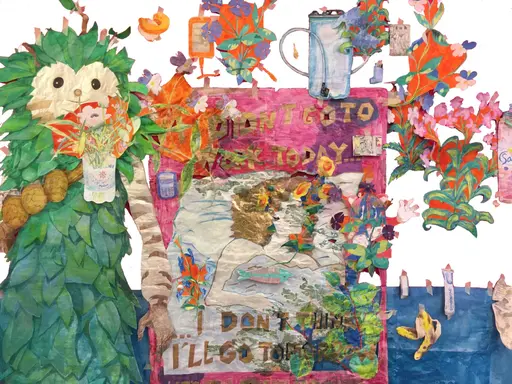
Als hij door de ‘Nothing To Declare’ uitgang van het vliegveld London Stansted loopt, ziet Sam Keogh drie grensbewakers: een varken, een eenhoorn en een bezorgde cartoonklok. Pig Eater is het script voor een monoloog dat voor het eerst opgevoerd werd als onderdeel van Keogh’s tentoonstelling Sated Soldier, Sated Peasant, Sated Scribe, in Goldsmiths Centre for Contemporary Art, Londen in 2021. Het verweeft fantasieën over overvloed en de afschaffing van werk; over feesten en rusten; over sabotage, anachronisme en het ‘opfokken’ van lineaire tijd.

In dit gesprek met Walidah Imarisha (voor het eerst gepubliceerd in Toward the Not Yet: Art as Public Practice, BAK en MIT Press, 2021), schetst de schrijver en activist haar concept van ‘visionaire fictie’ als een verbeeldingspraktijk om toekomsten te verlossen van het bolwerk van lineaire tijd. Imarisha put uit haar werk als strafrechtelijk abolitionist, en spreekt specifiek tot de bewegingen en ideeën die voortkomen uit de Zwarte strijd in de Verenigde Staten. Ze benadrukt dat we ons bij het veranderen van de toekomst moeten verhouden tot het verleden: ‘specifiek vanuit een kader gericht op gedekoloniseerde, niet-lineaire dromen van vrijheid die gegrond zijn in de strijd van gemeenschappen van kleur voor autonomie en bevrijding van kolonialisme.’
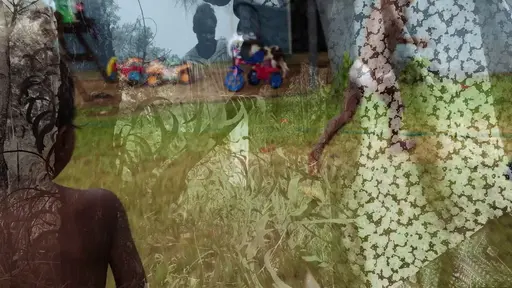
In haar essay ‘In Some Places the Not-Yet Has Long Been Already’ (voor het eerst gepubliceerd in Toward the Not Yet: Art as Public Practice, uitgegeven door BAK, basis voor actuele kunst en MIT Press, 2021) put Elizabeth A. Povinelli uit haar werk als onderdeel van het Karrabing Film Collective. In de tekst contrasteert ze de temporele oriëntatie van het laat-koloniale liberalisme – getroebleerd door de op handen zijnde catastrofes van een totale klimaatinstorting – met de voorouderlijke catastrofes van kolonialiteit en slavernij, die zowel van het verleden als het heden zijn. Deze voorouderlijke catastrofes, aldus Povinelli, ‘blijven groeien uit de grond die kolonialisme en racisme hebben bewerkt, in plaats van op te duiken aan de horizon van liberale vooruitgang.’

‘Dysfluent Waters’ is onderdeel van het multidimensionale project The Clearing van muzikant en schrijver JJJJJerome Ellis, respectievelijk een boek uitgegeven door Wendy’s Subway en een gelijknamig album uitgebracht door NNA Tapes in 2021. Hij ziet het bos en haar open plekken als ‘plaatsen waar al eeuwenlang verzet plaatsvindt middels zwarte gesproken cultuur.’ Ellis onderzoekt hoe stotteren, zwartheid, en muziek een rol kunnen spelen bij verzetspraktijken tegen dominante voorschriften voor de beleving van tijd, spraak en ontmoeting.

In haar tekst ‘Dearest Zen (Letters to Lichen)’ presenteert kunstenaar en wetenschapper Adriana Knouf toekomstige liefdesbrieven aan korstmossen: de samengestelde symbioten van schimmels en algen of cyanobacterieën. Bezien door de lenzen van de ‘xenologie’ (Knouf’s term voor de studie, analyse en ontwikkeling van het vreemde, buitenaardse en andere) en trans*-tijdelijkheden, onderzoekt ze manieren om te leren van, en opgetogen mee te doen met, intimiteiten en uitwisselingen tussen verschillende organismen.

In ‘Immortals: on the Ancient Future Lives of Stone and Plastic’ verweeft Marianne Shaneen verhalen, geschiedenissen en ontologieën van twee materialen: steen en plastic. Als quasi-onsterfelijke substanties zijn steen en plastic getuige van de catastrofale effecten van uitbuitende lineariteit, terwijl hun levensloop veel langer is dan dat van een mensenleven. Dit essay verweeft deze twee materialen, die schommelen tussen het geologische en synthetische, en die diep ingebed zijn in industrieel-kapitalistische ontwikkeling.
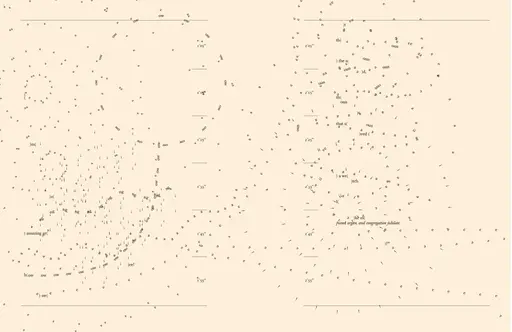
‘The Clearing: Melismatic Palimpsest’ is onderdeel van het multidimensionale project The Clearing van muzikant en schrijver JJJJJerome Ellis, respectievelijk een boek uitgegeven door Wendy’s Subway en een gelijknamig album uitgebracht door NNA Tapes in 2021. Hij ziet het bos en haar open plekken als ‘plaatsen waar al eeuwenlang verzet plaatsvindt middels zwarte gesproken cultuur.’ Ellis onderzoekt hoe stotteren, zwartheid, en muziek een rol kunnen spelen bij verzetspraktijken tegen dominante voorschriften voor de beleving van tijd, spraak en ontmoeting.